Do the people care about the climate crisis? These voters say yes - but the polls do not
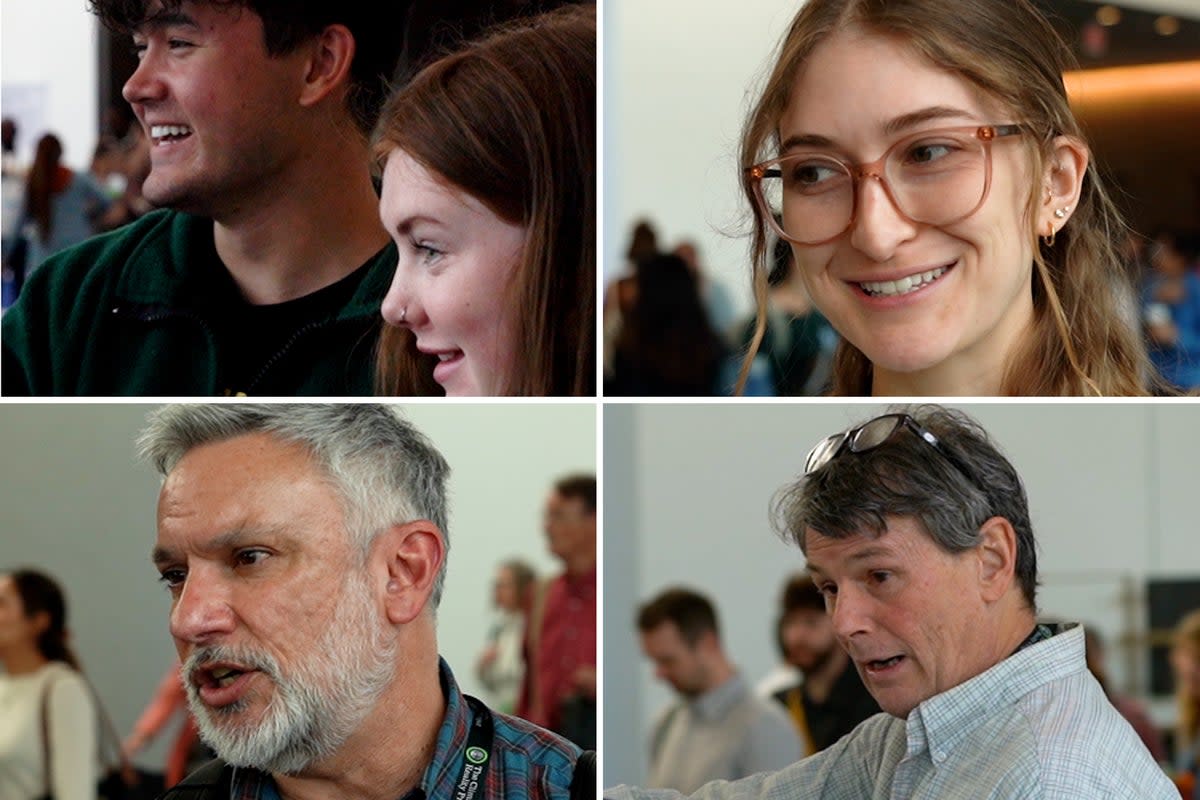
We sweated through the hottest year on record last year, and 2024 is threatening to be even worse. US wildfires destroyed more than 1.7 million acres in the first three months of 2024, already half of last year’s total, and forecasters expect an unprecedented number of Atlantic hurricanes.
Around 87 per cent of Americans say they have experienced at least one extreme weather event in the past five years — whether that’s drought, extreme heat, severe storms, wildfires or flooding. Three-quarters of adults believe the science that climate crisis is at least partly to blame, and the same percentage want the federal government to do something about it.
But when it comes to this year’s presidential election, the issue trails inflation, healthcare, immigration and jobs in the list of voter priorities.
It’s not difficult to explain why. For decades, climate change has been weaponized in politics with the fossil fuel industry funneling millions of dollars into lobbying and misinformation campaigns that have undermined public trust in science, and left people confused, hopeless or indifferent to the unfolding global catastrophe.
But climate action groups are fighting back against this poisonous legacy.
At the Javits Convention Center in New York over the weekend, the Climate Reality Project held its 55th event, and the first in New York City, aimed at training hundreds of new climate leaders from across the political spectrum.
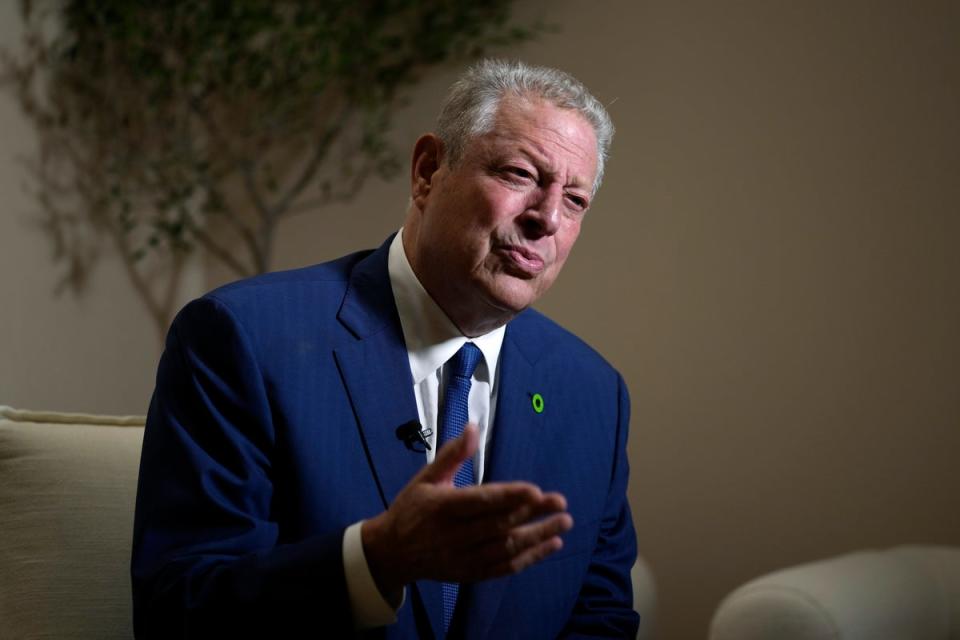
Former vice president Al Gore founded the non-partisation organization two decades ago, when 50 people joined him at his barn in Nashville, Tennessee to talk about climate issues in the wake of his documentary An Inconvenient Truth.
Since then, the group has sprouted dozens of chapters around the world. In the US, the project encourages people to push their members of Congress to support the Biden administration’s LNG pause; provides resources on electrifying homes and businesses; and has set up an anti-greenwashing campaign to combat the oil and gas industry’s false claims.
“Keep in close touch with the feeling and the passion that caused you to make the decision to come here,” Mr Gore told a packed audience on Friday, as he opened the event. “We’ll do our best for these next few days to give you the state of the art and science on both the causes and solutions to the climate crisis, and connect you with others of like mind and heart.”
Though the crowd leaned liberal and progressive, those who spoke to The Independent at the event underlined their concerns about how polarized the debate around the climate crisis had become.
“Bottom line - climate is an intersectional issue,” said Ella Weber, 21, a college student from Boise, Idaho, currently interning in Washington DC.
She emphasized the importance of figuring out the individual issues that matter most to people.
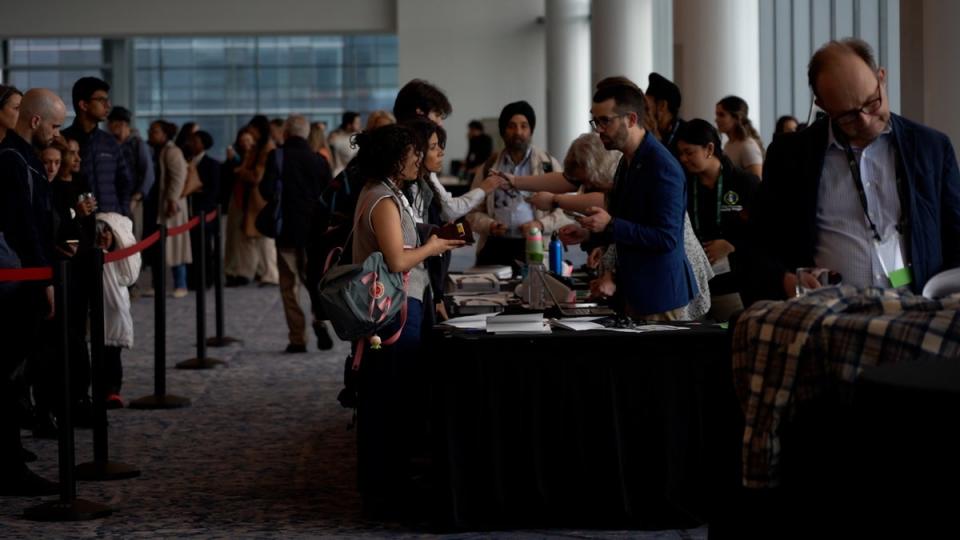
She pointed out that “not every single person’s top issue is going to be the same” but for her personally, climate is her biggest priority and voting motivator this election.
“It’s the ticket to what my future looks like, what my kids’ future is going to look like,” she said. “And that’s absolutely top of mind when I go to the ballot box this year.”
Shiva Rajbhandari, 19, a college student also from Boise, said he and Weber have knocked thousands of doors as part of their climate advocacy work.
Last summer he returned to Idaho and spoke to more than 100 people about climate impacts.
“I spoke to people who did not know what global warming was because climate change is not taught in our K-12 school system in Idaho,” he said.
“But they’d still seen changes in snowpack, flooding in their basements, drought,” he said. “Climate is one of those issues that affects everyone and the way that it’s marketed often as like ‘go vegan or you don’t care about climate change’, I think it has been kind of a failure of the left.”
We’re at a crossroads. President Biden has an opportunity to earn my vote by stopping sending military aid to Israel and also by acting on climate.
Ella Weber
Both said they would vote “uncommitted” in the upcoming Idaho caucuses, and haven’t decided what to do in November’s general election.
They cited President Joe Biden’s continued military support for Israel and the war in Gaza, which has killed more than 33,000 people and led to famine. They also pointed to his approval of a record number of oil and gas projects, even as his administration has passed historic climate-tackling legislation.
“We’re at a crossroads. President Biden has an opportunity to earn my vote by stopping sending military aid to Israel and also by acting on climate,” Weber said.
They were also concerned Mr Biden’s actions would benefit his Republican rival for the White House, former president Donald Trump, who Rajbhandari described as “the greatest threat to American democracy”.
“President Biden is risking our whole democracy by compromising on his values, the promises he made to this country when he was running, and instilling this voter apathy,” Rajbhandari said. “Because it’s not like [these] people are going to turn out for Trump, people just aren’t going to turn out. It’s going to be like 2016.”
For New Yorker Jeffrey Rose, 59, a clinical hypnotist and nutritionist who was attending the event with his 16-year-old daughter, his concern about climate issues and political divisiveness, had him advocating for an alternative choice: Robert F Kennedy Jr, son of the Democratic political dynasty, who is running as a Independent in 2024.
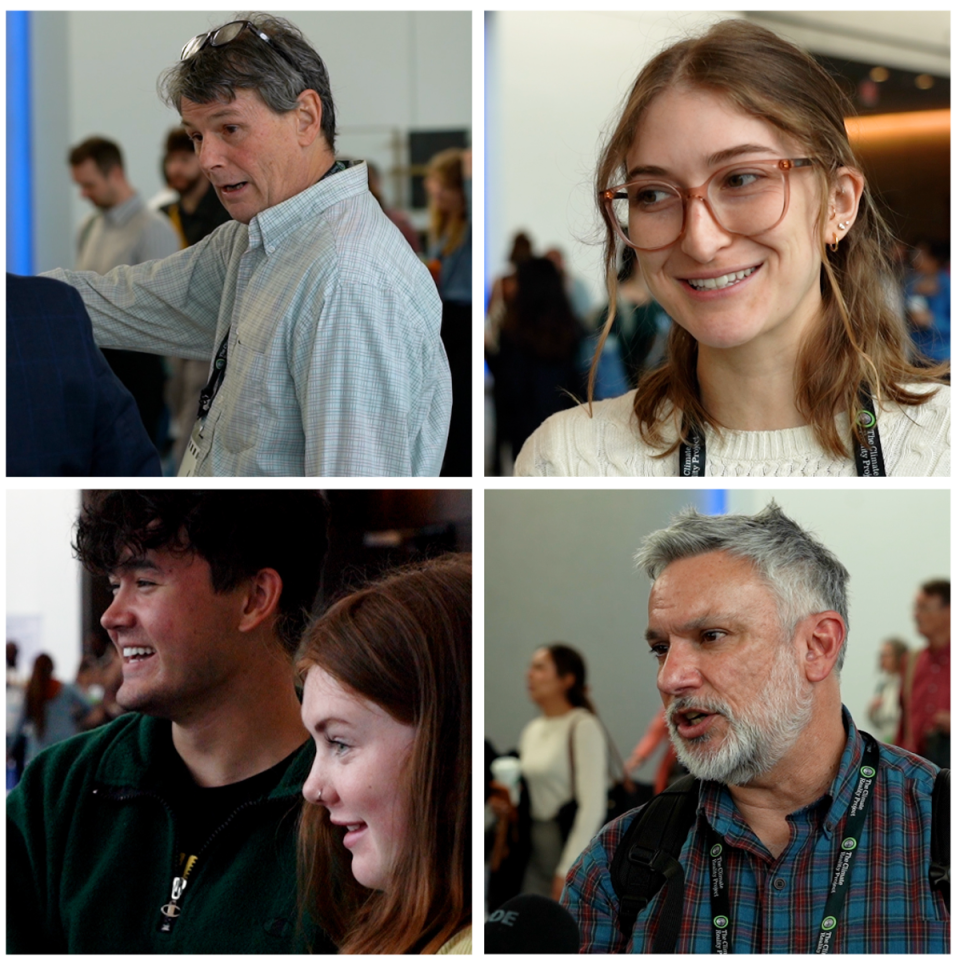
“I’ve been a lifelong Democrat, liberal, and big champion of the environment - clean air, clean water and clean body as well. I think having someone like Robert F Kennedy Jr as president would be helpful to heal the divide,” said Mr Rose, sporting a “Kennedy 24” hat.
He said that he is also a longtime friend of the candidate and scrolled through some photos of the pair together on his phone.
Grace Nevitt, 25, from New York who works in wardrobe on Broadway productions, said that climate is her number one issue and that she is also considering third- party options, calling the Democrat and Republican presidential choices “lacklustre”.
“The main two choices, neither of them are speaking to me particularly,” she said.
“RFK Jr is kind of speaking to me because he used to be a climate lawyer [and] activist. And I feel that’s one of his top issues.
“So if anyone might get my vote, it’ll possibly be him,” Nevitt said. “I’m not 100 per cent sure yet but he seems to be focusing on that very highly.”
Others acknowledged the limitations of Mr Biden’s climate record but were passionate supporters.
“I’m excited about my choice, I’m voting for President Biden,” said Vikram Krishna Murthy, 52, from Wilmington, Delaware, who works for an environmental organization, and who described his top issues as “a combination of climate and preserving democracy”.
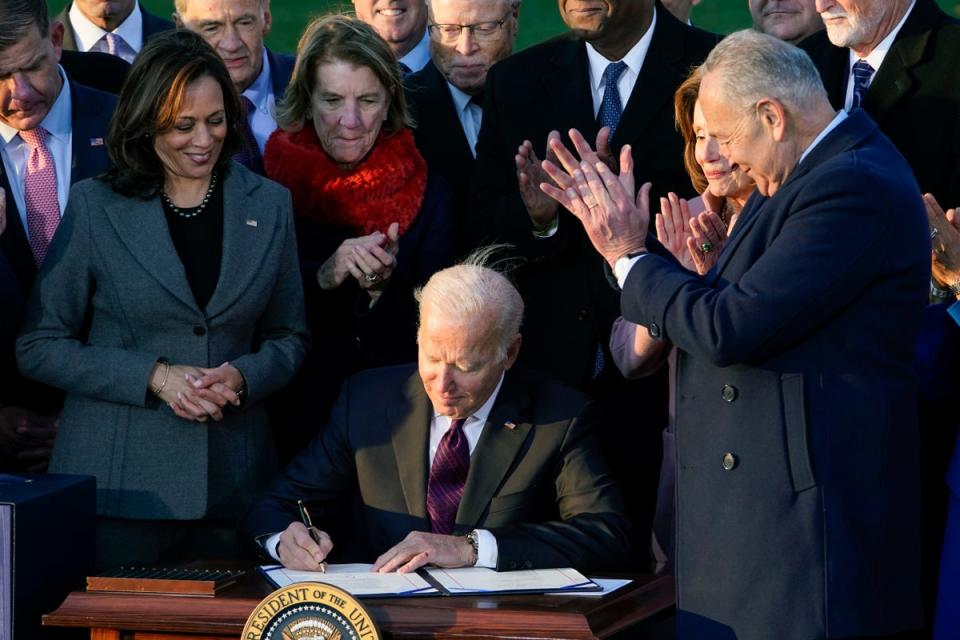
“I know that there are some detractors [of Mr Biden] based on some factors and projects that have been approved that are not favorable to some climate activists,” he said.
“But I think there have been some major steps forward under his administration over the last three and a half years.”
Mr Krishna Murthy said even though people were aware of serious climate impacts - rising sea levels, hotter summers "there’s still a disconnect between how urgent the situation is for action".
He added: “I think getting people to reflect on their own behaviors and what they might be able to do differently, maybe some incremental small steps to start out. But we also need major change. I think it’s collective action that’s really going to make a difference.”
Ed Horan, 68, from Yonkers, New York, who works in the construction industry and has been involved with environmental action for 30 years, said he was “wildly enthusiastic” about Biden.
“I think he’s a wise man. That’s generally what happens - the older you get, the wiser you get. And whatever the issue, I think he’s got a smart approach to it.”
Horan said that he was encouraged by the number of young people attending the weekend’s training, and how energized they were on climate issues. But he said that he saw less of that enthusiasm among Boomers.
“There are some people, and maybe a little bit more as time goes on,” he said.
He added: “But the main thing going on now in the United States is polarization, right? It’s ubiquitous. Within 30 seconds of talking to a stranger you can pick up on cues, you know, what are they? Are they right wing or left?”
Horan also wished that the climate crisis would get more attention this election cycle by politicians and in the media.
“I see it getting some — [attention] but not enough,” he said. “I feel strongly about it.”